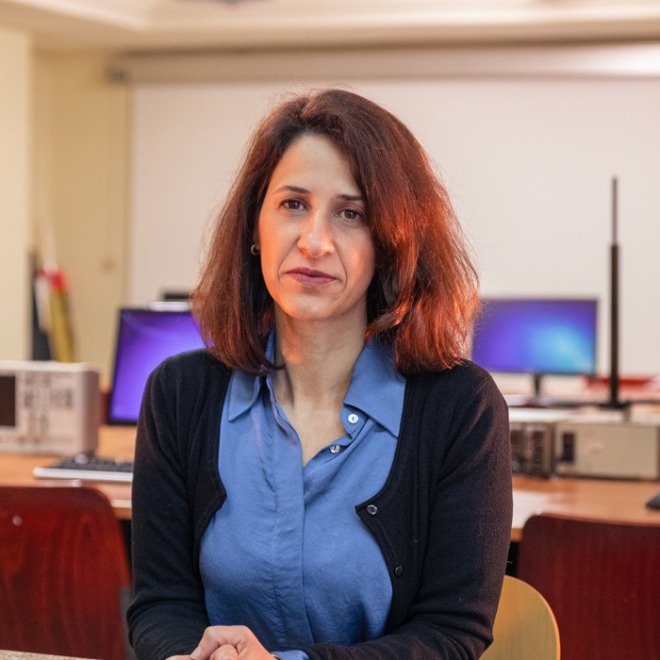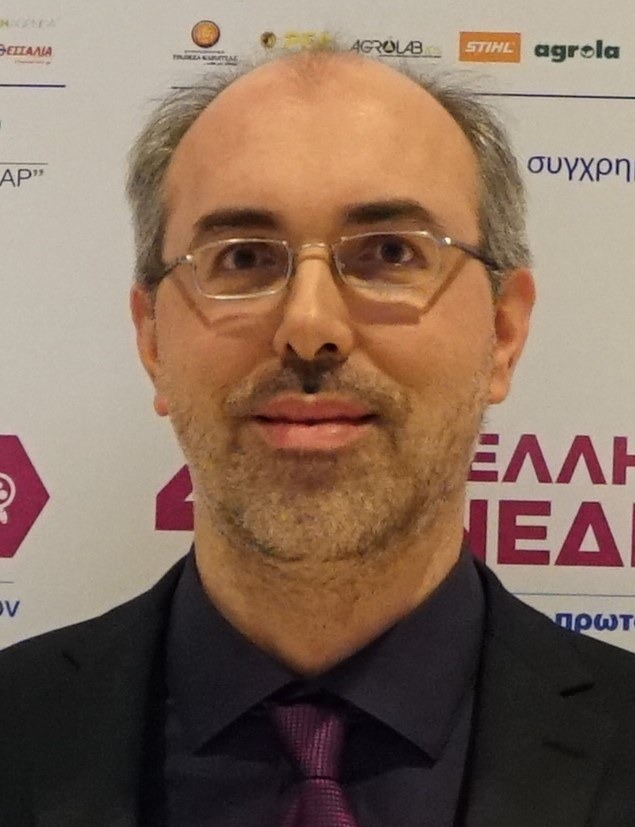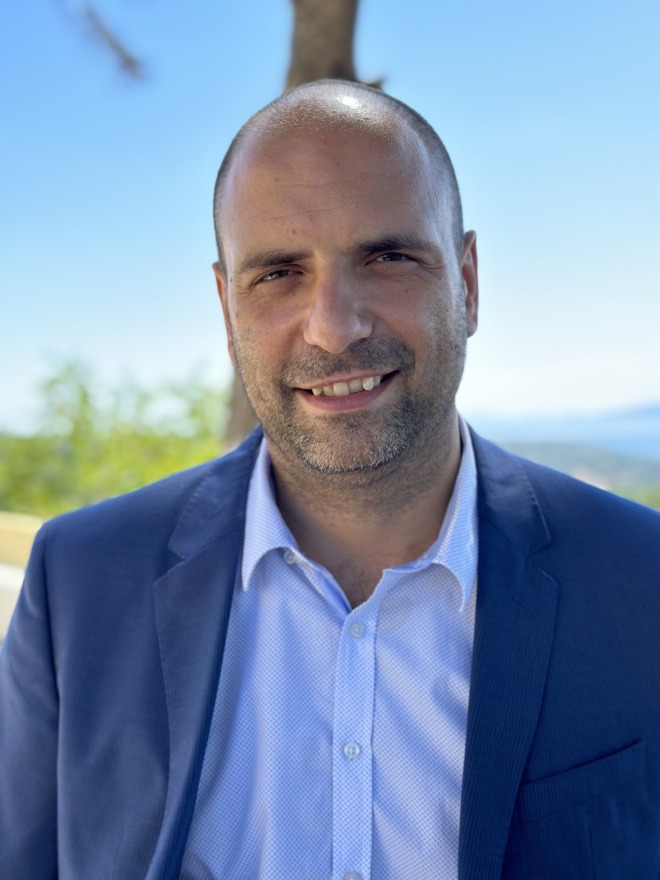
Information and Communication Systems
This Master's program offers specialization in the field of informatics, aiming at the effective management of digital technology and operational systems in modern organizations.
Mode of Study
Distance Learning
Start Date
October 2025
Duration
3 Semesters (up to 6 for part-time study)
ECTS
90 Credits
Application Deadline: 29 June!
Apply91%
EMPLOYMENT RATE
Computer Science for Graduates of All Sectors
The object of the Master's Program is the production and transmission of knowledge to scientists in the field of Information and Communication Systems. The purpose of the Master's Program is the promotion of knowledge and the development of research on the one hand, and the training of scientists who are not specialists in the field of Information Technology and Communications, and who are nevertheless necessary for the educational, research and development needs of the country.
Objectives of the program:
- The promotion of science and research in the subject of the program to scientists of all specialties.
- The preparation and training of specialized and competent scientists and researchers who will promote the development of the country and Greek businesses in the society of information and knowledge.
- The preparation for postgraduate studies at the doctoral level.
- The close cooperation between the academic community and businesses for the acceptance, use and dissemination of the most advanced information and communication systems.
- Cooperation with Greek, European and international scientific organizations dealing with IT and Communications issues.
Skills Acquired:
- Specialization required by the most recent scientific and technological developments in the field of Information Technology and Communications.
- Skills based on the special characteristics and needs of the modern Greek and European Economy.
All postgraduate programs of the University of the Aegean are recognized and accredited by the Greek state.
Learn More
Our partners and graduates said:
Flexible Study Options
Full-Time Study
- 3 semesters (one semester for thesis)
- Evening online lectures
- Teaching with modern digital means
- In-person, only the exams at the end of each semester
- Gradual tuition fee payment
- Scholarship opportunities
Part-Time Study
- Specifically for working professionals
- Fewer courses per semester
- Up to 6 semesters (one semester for thesis)
- Same rights and obligations as full-time students
Application Deadline
Until June 29, 2025
Teaching Staff
Videos

Program Information
Program Information
Distance Learning
Courses are taught through synchronous distance learning using a platform that supports the educational process during all weeks of study for the first two academic semesters.
At the end of each of the first two semesters, in-person final exams are conducted.
Full-Time / Part-Time Study Program
The full-time study program lasts for three academic semesters and is implemented in a blended learning environment with standard combinatorial forms of education, which include electronic contemporary learning processes utilizing a relevant platform that supports the educational process throughout all weeks of study in the first two academic semesters. During the third semester, only a dissertation is completed. Attendance of classes and participation in all kinds of educational activities, such as assignments, exercises, etc., is mandatory.
The duration of study in the postgraduate program is set at three academic semesters, which includes the time for the completion of the dissertation. The maximum allowed time for the completion of studies is set at six academic semesters.
For working students who wish to, part-time study is available. Students in this category must be employed for at least 20 hours per week and must provide a relevant employment contract or employer's certificate.
Part-time study is also available for non-working students who are unable to meet the requirements of full-time study for health reasons, family reasons, military service, force majeure, etc. Interested parties must submit a request to the Department Assembly before the start of the program's classes. The duration of part-time study cannot exceed six academic semesters.
Course List
1st Semester
2nd Semester
3rd Semester
| Code | Course Title | Type | ECTS |
|---|---|---|---|
| 5000 | Master's Thesis | Mandatory | 30 |
Part time Enrollment Course List
1st Semester
2nd Semester
3rd Semester
4th Semester
5th Semester
| Code | Course Title | Type | ECTS |
|---|---|---|---|
| 5000 | Master's Thesis | Mandatory | 30 |
Course Instructors
| Course Title | Semester | Instructor |
|---|---|---|
| Information Systems | 1st | Professor Maria Karyda |
| Information and Communication Systems Security | 1st | Professor Spyros Kokolakis |
| Communication Systems and Networks | 1st | Professor George Kormentzas |
| Intelligent Systems | 2nd | Professor Efstathios Stamatatos , Associate Professor Theodoros Kostoulas |
| Software Engineering | 2nd | Professor Christos Goumopoulos , Associate Professor Kyriakos Kritikos |
| Data Structures and Databases | 2nd | Associate Professor Akrivi Vlachou |
| Master's Thesis | 3rd |
Cost
Participants in the postgraduate program pay tuition fees according to Article 86 of Law 4957/2022, amounting to €3,000, in four (4) installments, considering the needs of supporting the organization and operation of the study program.
The timely payment of the 1st installment is a prerequisite for attending the program.
Postgraduate students are required to promptly settle all their financial obligations.
It is noted that in case of non-registration or discontinuation of studies, the portion of the tuition fees that has already been paid will not be refunded.
Scholarships
The postgraduate program may offer a number of scholarships based on academic criteria to full-time students, according to a decision by the Assembly.
This decision specifies the amount of the scholarships, the required documentation, the scholarship awarding process, and the obligations and rights of the scholarship recipients.
Admission Requirements
Holders of a first cycle degree from Greek Higher Education Institutions (HEIs) or from equivalent institutions abroad, recognized by the Hellenic National Academic Recognition Information Center (DOATAP), are eligible for admission to the Master's Program.
Graduates of the country’s Higher Military Educational Institutions (ASEI) are also accepted, specifically from the Hellenic Army Academy, the Hellenic Naval Academy, and the Hellenic Air Force Academy (Article 88, Law 3883/2010, Government Gazette A' 167). Additionally, graduates of the Hellenic Police Officers School are accepted (Article 38, Law 4249/2014, Government Gazette A' 73).
Final-year undergraduate students of Greek institutions are also eligible, provided they have completed all graduation requirements and submit the relevant completion certificate by the date of registration in the Master’s Program.
Required Documents
Applicants are required to fill in a candidacy application form, attaching the following documents:
- A copy of their ID or passport
- A CV
- A copy of their degree/diploma or a certificate of studies completion
- Peer-reviewed publications, if there are any
- Certificates of professional or research activities, if there are any
- Two references
- A copy of the candidate’s undergraduate dissertation or its title and abstract if it has not been completed; in case the candidate was not required to write a dissertation during their undergraduate studies, they should mention so in writing
- Proof of English language competency equivalent to or higher than B2 level (according to the Common European Framework of Reference for Languages)
- Any other document that the candidate believes it might support their application
The application and all digital copies of documents must be submitted online on the “Nautilus” platform (https://nautilus.aegean.gr/). Hard copies can be submitted in person during admission.
Study Regulations
Circulars related to the Study Regulations of the program:









